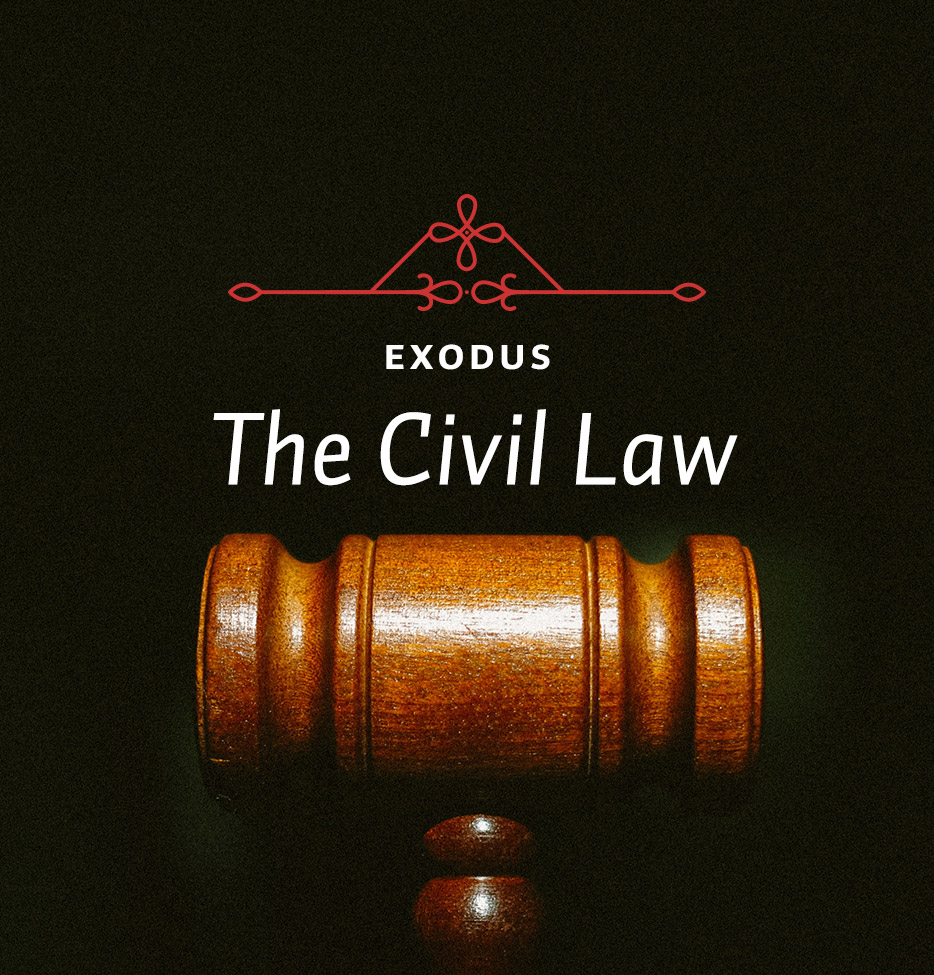Regarding these three views—the traditional approach, dispensationalism, and reconstructionism—as different as they are, they do agree on two things: the ceremonial law has been fulfilled in Jesus Christ, and that the moral law applies today in some way, though each has a different understanding for how this should be done. I maintain that the traditional approach is the best because it believes that the covenant does continue from the Old Testament into the New, while also recognizing that there are changes that have come through the work of Christ.
The real area of difficulty has to do with the civil law, but it’s not hopeless. Though I do not believe it is biblical to say that the civil law given to Israel is to be applied to secular governments today, nevertheless, the civil law does contain within it principles that we can apply for what we would call basic human rights, and for justice based upon those rights. Perhaps we can urge some of those principles upon our secular government. But even if we cannot, what do these civil laws have to say to the way we conduct the affairs of the church? This is where we have to model what righteousness is and how we are to relate with one another. This is the way I suggest we need to approach these laws that we find in the Book of the Covenant.
It bothers some people that the Bible doesn’t denounce slavery as something terribly evil, but slavery was simply a fact of life in ancient times. It was the way economies ran. We need to remember that the principles of the Old Testament law and the principles particularly in Christianity eventually led to the abolition of slavery. In the book of Exodus we see the root for radical social reform.
One thing we notice from Exodus is that there was no such thing as a permanent, involuntary servitude of one Israelite to another. A person could become a slave in various ways, mostly through debt, but this wasn’t to continue indefinitely. The very first law concerning a servant is that he is to serve his master for six years, but in the seventh year he shall go free (see 21:2). In fact, if you compare what is said here with what’s said in Deuteronomy on the same subject you’ll find that when that slave is set free in the seventh year, he wasn’t to be set free with nothing. He was to be given a share of the produce. Deuteronomy 15:12-15 says that the owner has to provide him with a share of the flock, some of the produce of the threshing floor and the wine press. In other words, he wasn’t to be sent away by his master empty handed. He was to be provided for so he wouldn’t unnecessarily fall back into slavery once again.
We also see that respect is given to the family, even that of the slave. If a slave had a wife when he entered the service of his master, he had the right to take her with him when he was set free. If he was given a wife by his master, the wife remained the owner’s. But she had to be set free when her time of freedom came. This is far different from the cruel and unjust way slave families were treated in our own country, when they were broken up at random. Here we notice a more humane practice.
A striking element in the set of laws is the right of the slave to choose slavery permanently if he wished. Now this suggests that in that economy slavery wasn’t the worst of all possible options. At any rate, it preserves the right of the slave to determine his own destiny.
Another provision concerns the daughter who is sold to another as a servant—particularly her rights to a husband and a home. She couldn’t be trifled with, and if she had been purchased for the master’s son to be his wife, she was to be given the rights she would have had if she were the master’s own daughter.
The Israelites are dealing with the reality of slavery. But these laws recognized that even slaves are people made in God’s image, and therefore they are to be treated with dignity and respect. That is an enormous step forward from anything that was transpiring in the civil laws of the other nations of that time.






